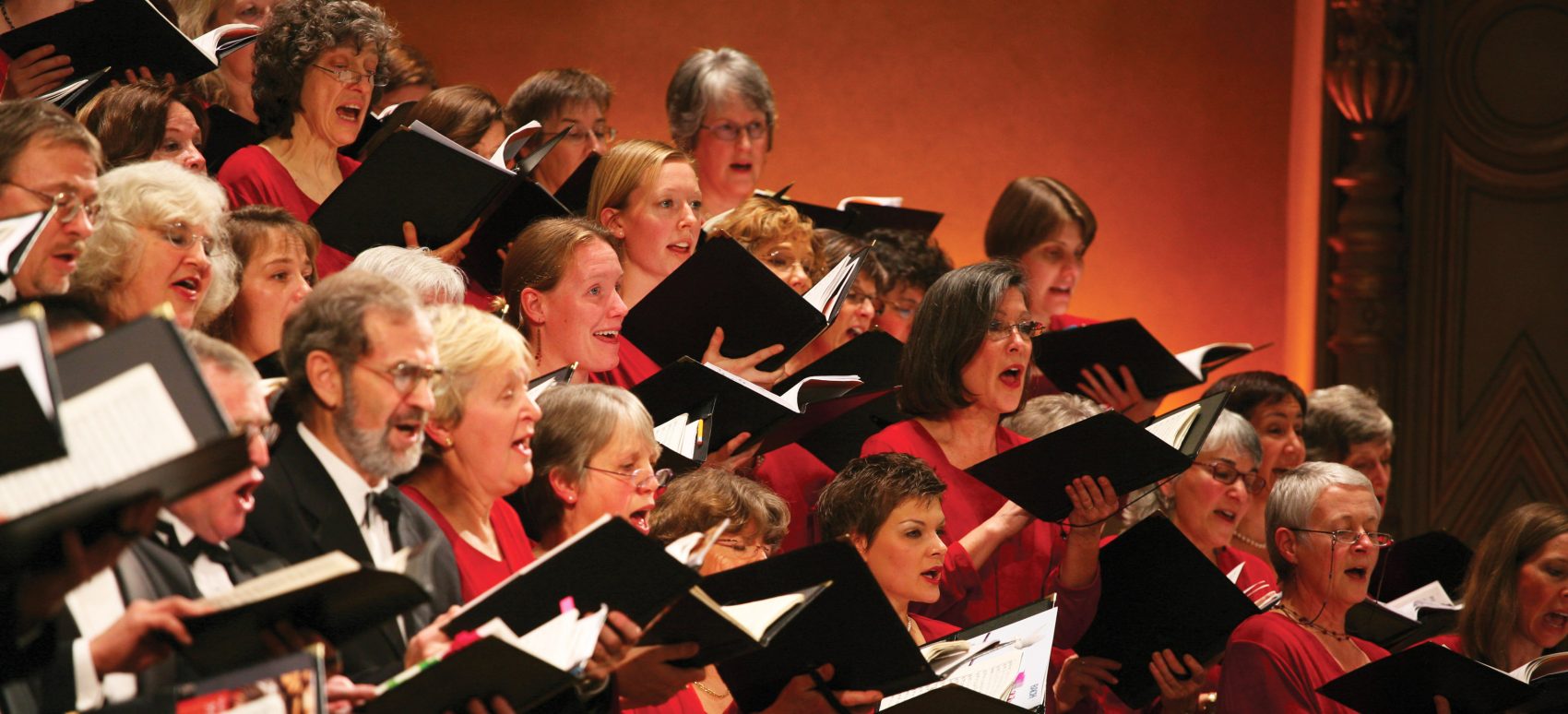Christ Church Cathedral | Map
Leslie Dala, music director; Vancouver Bach Choir; Kathleen Allan, music director; Danielle Reutter-Harrah, soprano; Sumner Thompson, baritone; Christina Hutten, organ
For EMV’s first collaboration with the Vancouver Bach Choir, the singers of this illustrious choir join sixteen of the finest professional choral singers in the Pacific Northwest for a performance of Faure’s uplifting Requiem and Cantique de Jean Racine. The first half will focus on unaccompanied performances of works by other important French composers including a full performance of Poulenc’s Mass in G.
To view/download this programme, please click here.
This concert is generously supported by RPC Family Foundation and Anthony Roper
Programme
VANCOUVER BACH CHOIR AND VANCOUVER BACH FESTIVAL CHAMBER CHOIR
conducted by Leslie Dala
Gabriel Fauré (1845-1924):
Cantique de Jean Racine
VANCOUVER BACH FESTIVAL CHAMBER CHOIR
conducted by Kathleen Allan
Francis Poulenc (1899-1963):
Mass in G major
Darius Milhaud (1892-1974):
Cantique du Rhône – I. Qu’il est beau
Camille Saint-Saëns (1835-1921):
Op. 68, No. 2: Les fleurs et les arbres
Maurice Ravel (1875-1937):
Trois Chansons – III. Ronde
INTERVAL
VANCOUVER BACH CHOIR AND VANCOUVER BACH FESTIVAL CHAMBER CHOIR
conducted by Leslie Dala
Gabriel Fauré:
Requiem in D minor, Op. 48
Introit et Kyrie
Offertoire
Sanctus
Pie Jesu
Agnus Dei
Libera Me
In Paradisum
Programme Notes
What value does the music of the past hold for us today? What does it mean for music-making to be historically informed? Is ancient music a museum artifact to be preserved, a dynamic glimpse into history, something to be revived on account of its continued relevance and emotional impact, a source of compositional inspiration, all of the above? These are the sorts of questions that Early Music Vancouver’s programming explores. Such questions also interested the nineteenth and twentieth century French composers whose music is on tonight’s programme. Then as now, the answers were diverse, personal, and sometimes paradoxical. In nineteenth-century France, the music of Couperin was prized for its quintessential Frenchness and condemned an artifact of the reprehensible ancien régime. The music of Palestrina symbolized both perfect purity and Catholic repression. The music of Bach was touted as the universal ideal and treated as suspiciously foreign. Despite the complexity of their opinions about the music of the past, each composer found there a subject of curiosity and a source of inspiration, that caused him to foster artistic dialogue with colleagues historical and contemporary.
Camille Saint-Säens, a brilliant musical craftsman, led a revival of musical arts in nineteenth-century France. He was called “the musician of tradition”, on account of the way he grounded his composition in genres and techniques of the past. He spent time studying Handel’s manuscripts and editing the complete works of Rameau, while training and mentoring the next generation including Gabriel Fauré. Saint-Säens taught piano at the Ecole de musique classique et religieuse, where he avidly promoted contemporary music and encouraged his students to compose. The Cantique de Jean Racine, Op. 11, setting an ancient Latin hymn in elegant French paraphrase by seventeenth-century poet Jean Racine, was Fauré’s graduation piece for which he won first prize in composition. He later became assistant organist to Saint-Säens and eventually choir master at the Church of the Madeleine.
Fauré dedicated his Cantique to the well-loved and influential Parisian organist César Franck, whose Prélude, Fugue, et Variation, Op. 18, No. 3 bears the heading “à son ami Monsieur C. Saint-Säens”. Saint-Säens must have admired the way that this piece marries hauntingly Romantic melodies with the Baroque prelude and fugue form and figuration borrowed from Bach’s chorale preludes. Parisian colleague Franz Liszt declared the six pieces of Franck’s Op. 18 worthy of “a place beside the masterpieces of Bach”.
Other composers found inspiration in plainsong and the Renaissance polyphonic tradition that had grown around it. Poulenc compared his Mass in G Major to the sacred music of sixteenth-century Spanish composer Tomás Luis de Victoria. This vivid work is best described by Poulenc himself.
In arriving in Anost in August 1937, I had decided to write a Mass dedicated to my father’s memory. Because I am from Aveyronais stock, that is to say Montagnard [from the mountainous region in the south of France] and already Mediterranean, the Romanesque style has always been at the root, quite naturally, of my preferences. Thus, I tried to write in a rough and direct style, this act of faith called a Mass. This roughness is especially striking in the opening Kyrie, but do not forget that at the beginning of the church, the unbaptized could also sing this hymn with the priests. It is what explains the savage style of my Kyrie. For the Sanctus, I thought of the heads of angels intermingled in the frescos of Gozzoli in the Riccardi Palace in Florence. It is a carillon of voices. As for the concluding Agnus, sung by a solo soprano in a high register, it symbolizes the Christian soul, confident of a life after death.
At a time destabilized by industrialization, fin de siècle anxiety, war, and reconfiguring of national borders, musical traditions of the past offered a sense of connection, belonging, homeland, and religious comfort. Choral music amplified these associations because of its strong community and amateur music-making component. On concert programmes and in liturgy, the music of turn-of-the-century French composers often appeared alongside the ancient music that had inspired it. Poulenc invited Darius Milhaud to compose his Cantique du Rhône for a concert by the Chanteurs de Lyon that included music by Renaissance composers Palestrina, Monteverdi, Janequin, as well as contemporary composers Ravel, and Poulenc. Maurice Ravel’s Trois chansons were a response to the horror of WWI. The texts, self-composed in the style of popular rhymes, deal with loss and rejection of the wisdom of elders. Ravel’s settings, the only music he ever wrote for a cappella choir, are in the style of sixteenth-century chansons.
Gabriel Fauré’s Requiem expresses serene hope of resurrection rather than grief or terror of dying. He wrote it not in memory of a specific person, but “for the pleasure of it”, treating the liturgical texts with more flexibility than usual. He omitted the ominous text of the Dies irae (Day of Wrath) sequence except its tranquil final line “Pie Jesu Domine, dona eis requiem sempiternam” (Loving Lord Jesus, give them everlasting rest). His setting of this text has become so famous and beloved that it has achieved plainsong-like status. To conclude with an atmosphere of stillness and blessing, Fauré chose to set a marginal liturgical antiphon typically used as a final graveyard blessing “In paradisum deducant te Angeli” (May the angels lead you into paradise”. This text also creates circularity in the work, which begins and ends with the word “requiem” (rest); in fact, five of the seven movements include this word, and Fauré highlights it musically whenever it appears. Fauré began his Requiem in 1877, but its final orchestration only completed (perhaps by a student) in 1900. Tonight, you will hear it in an arrangement for Fauré’s own instrument, the organ, sung by a choir that celebrates Vancouver’s musical community, bringing together the 89-year tradition of the Vancouver Bach Choir and professional voices of the newly formed Vancouver Bach Festival Chamber Choir.
— Notes by Christina Hutten
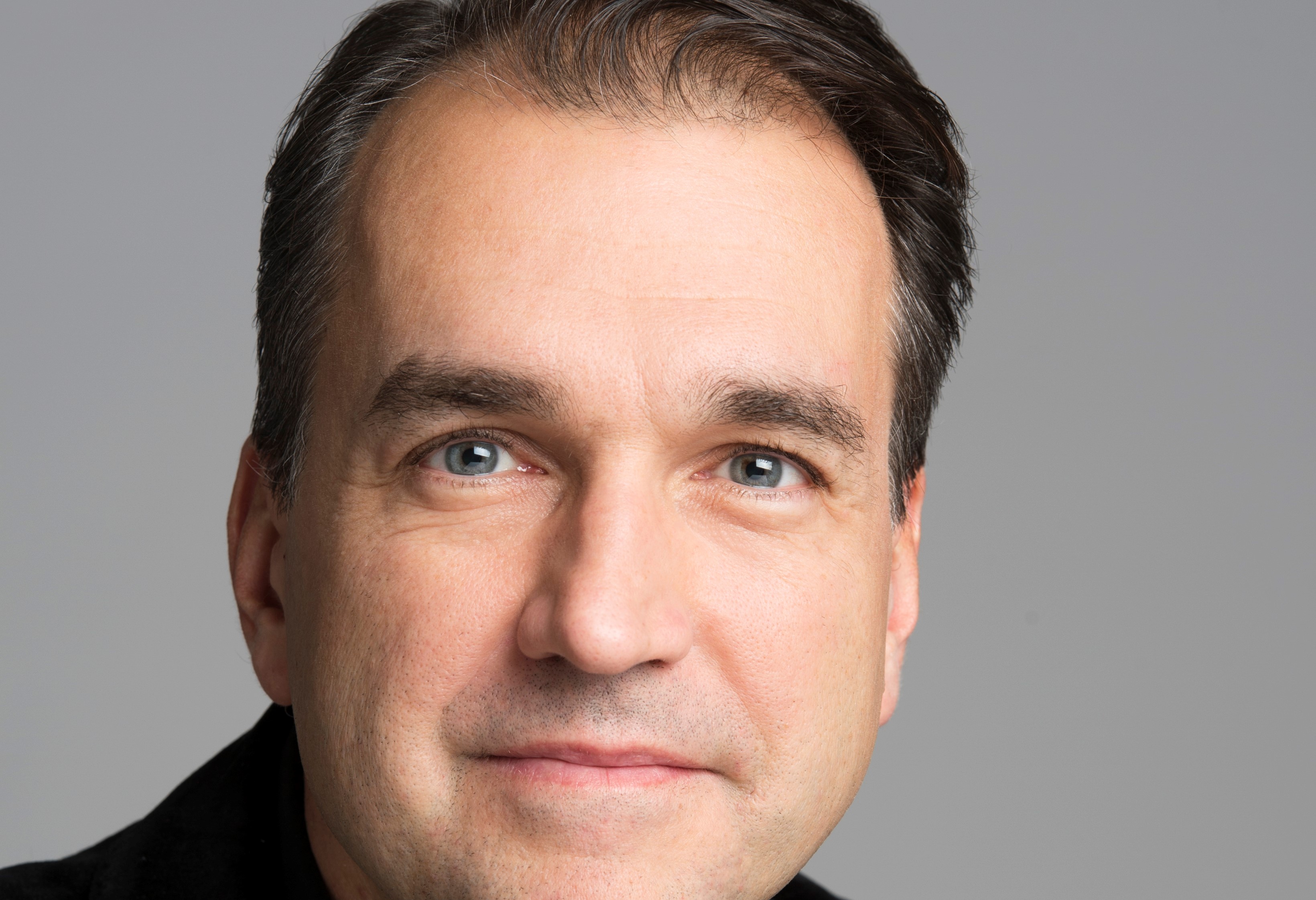
Leslie Dala, music director
Dynamic Canadian conductor Leslie Dala is steadily in demand across Canada, in 2015 leading productions of The Magic Flute (Edmonton Opera) and Madama Butterfly (Saskatoon Opera). As Music Director of the Vancouver Bach Choir, Leslie conducted the Canadian premiere of John Adams’ El Niño and Mendelssohn’s Elijah with Vancouver Symphony. Equally at home with symphonic music, opera and contemporary music, Leslie was a guest conductor with Thunder Bay Symphony in 2016, and was recently chosen as Principal Conductor of the Vancouver Academy of Music. From 2003 to 2011, Leslie held the position of Music Director and Conductor of the Prince George Symphony.
As Associate Conductor and Chorus Master of the Vancouver Opera, Leslie has prepared over fifty main stage productions, and has conducted performances of The Magic Flute, Rigoletto and West Side Story. In 2013/14, Britten’s centenary, Leslie conducted Albert Herring for Pacific Opera Victoria, Vancouver Opera, and at University of Toronto’s Opera Division. Leslie has collaborated with the UBC Opera Ensemble for several seasons conducting many productions including The Florentine Straw Hat (Nino Rota). Maestro Dala leads the popular “Merry Evening of Opera” concerts presented each August by the Bard on the Beach Festival
Previously held positions for this versatile conductor include Music Director of Les Jeunes Voix du Rhin, in Strasbourg, France and the Opera as Theatre program at Banff Centre, where he conducted John Estacio’s Lillian Alling. Leslie Dala opened Vancouver Opera’s 2014/15 season with the world premiere of Stickboy, a powerful new anti-bullying opera by Neil Weisensel and Shane Koyczan.
An avid performer of contemporary music, Leslie conducted the Toronto premiere of Shelter (Palmer/Salverson) for Tapestry New Opera and the North American premiere of Philippe Boesmans’ opera Julie for Canadian Stage. A frequent guest with Soundstreams Canada, this past season Leslie conducted George Crumb’s haunting Ancient Voices of Children with soprano Adrianne Pieczonka in ‘Beyond the Aria’ and celebrates ‘Steve Reich at 80’ at Massey Hall.
Guest conducting engagements for Maestro Dala include The Nutcracker with Vancouver Opera Orchestra for Goh Ballet, Menotti’s Postcards from Morocco with University of Toronto’s Opera Division, and in 2015, Così fan Tutte, Centre for Opera Studies in Italy.
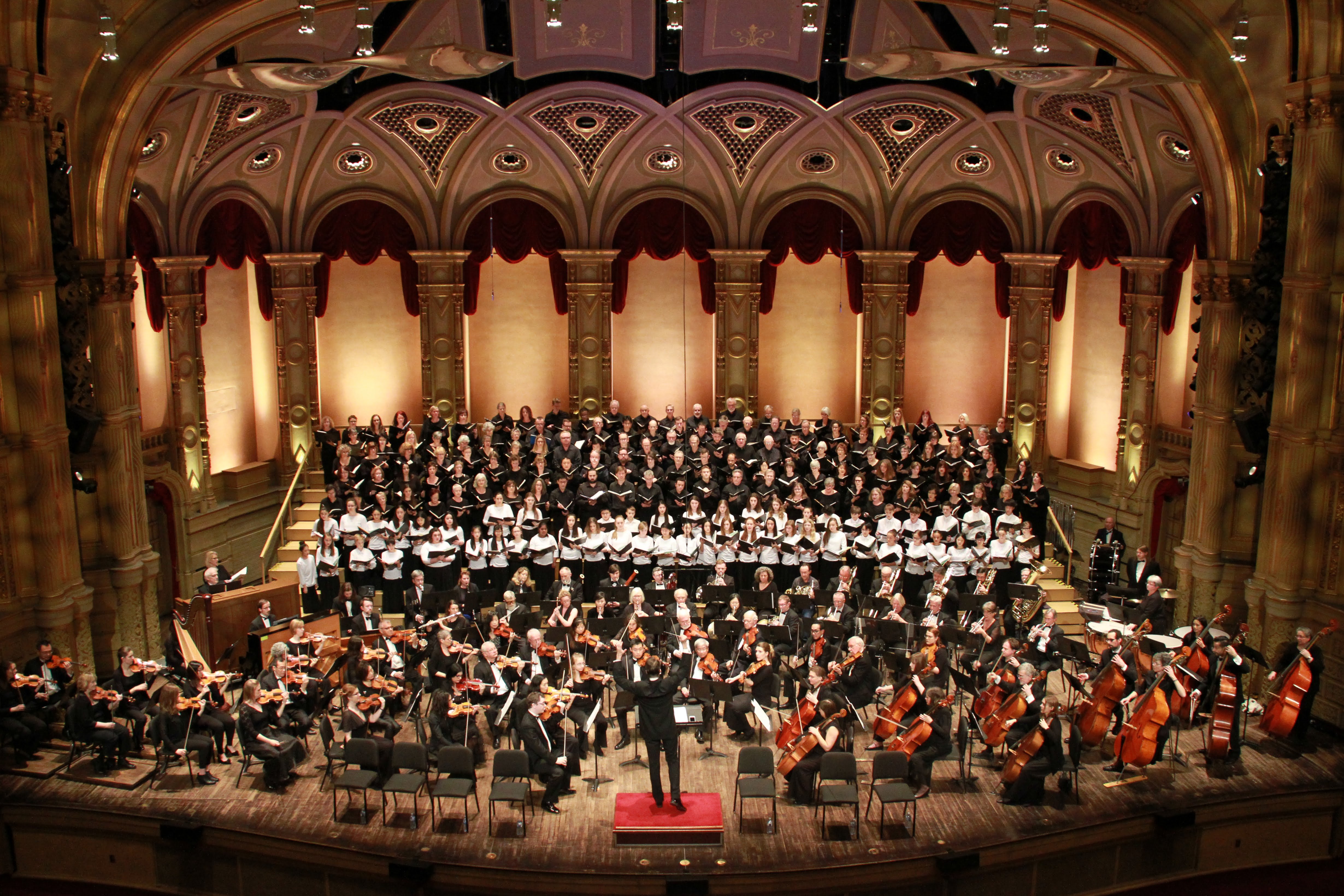
Vancouver Bach Choir
Situated in Vancouver, the gateway of the Pacific Rim, the Vancouver Bach Family of Choirs is an organization which includes the award-winning adult symphonic choir and children’s program. The organization is committed to offering choral education to its members – 100+ adults and 330+ young people – as well as vibrant and culturally diverse choral experiences to its audiences.
As one of the largest choral organizations in Canada, the Vancouver Bach Family of Choirs explores a wide range of repertoire from the past to the present with passion and commitment. Through its series of concerts presented at the magnificent Orpheum Theatre and throughout the lower mainland and points beyond, the organization continues to meet its mandate of choral education, as well as commissioning and performing works by Canadian composers alongside the world’s favourite symphonic choral works.
The adult choir, under the baton of Maestro Leslie Dala, celebrates its 88th anniversary in the 2018-19 season. The 2018-19 season celebrates the 34th anniversary of the children’s program, ably guided by Music Director Marisa Gaetanne.
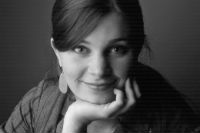
Kathleen Allan, music director
Kathleen Allan is the incoming Artistic Director and Conductor of the Amadeus Choir of Greater Toronto and is the Artistic Director of Canzona, Winnipeg’s professional Baroque choir. Originally from St. John’s, NL, Ms. Allan is in high demand as a conductor, composer and clinician and is equally comfortable working in early, contemporary, and symphonic repertoire. Until 2019, Ms. Allan served as the Director of Choral Studies and Associate Conductor of the Symphony Orchestra at the Vancouver Academy of Music and was the Associate Conductor of the Vancouver Bach Choir. She was the 2016 recipient of the Sir Ernest MacMillan Prize in Choral Conducting which accompanied her role as Apprentice Conductor of the National Youth Choir of Canada. In 2015, Ms. Allan made her Asian debut conducting Handel’s Messiah and Bach’s Christmas Oratorio in Japan. She is a founding co-Artistic Director of Arkora, an electric vocal chamber consort dedicated to blurring lines between the music of our time and masterworks from the ancient repertoire.
Her compositions have been commissioned, performed and recorded by ensembles throughout the Americas and Europe and have been featured at two World Symposiums on Choral Music. Her collaboration with Labrador youth choir Ullugiagâtsuk was featured at the National Arts Centre Canada Day celebrations on July 1, 2017. She is published by Boosey and Hawkes, Cypress Choral Music, and is a MusicSpoke composer. Also an accomplished soprano, she has appeared as a soloist with the National Broadcast Orchestra, Berkshire Choral Festival, and the Vancouver Symphony Orchestra. In addition to freelancing regularly in Canada and the US, she has performed with the Vancouver Chamber Choir, Early Music Vancouver, the Arnold Schoenberg Chor (Vienna), Clarion Choir (New York City), Skylark Vocal Ensemble (Atlanta), and the Yale Schola Cantorum. She holds a degree in composition from the University of British Columbia and a master’s degree in conducting from Yale University.
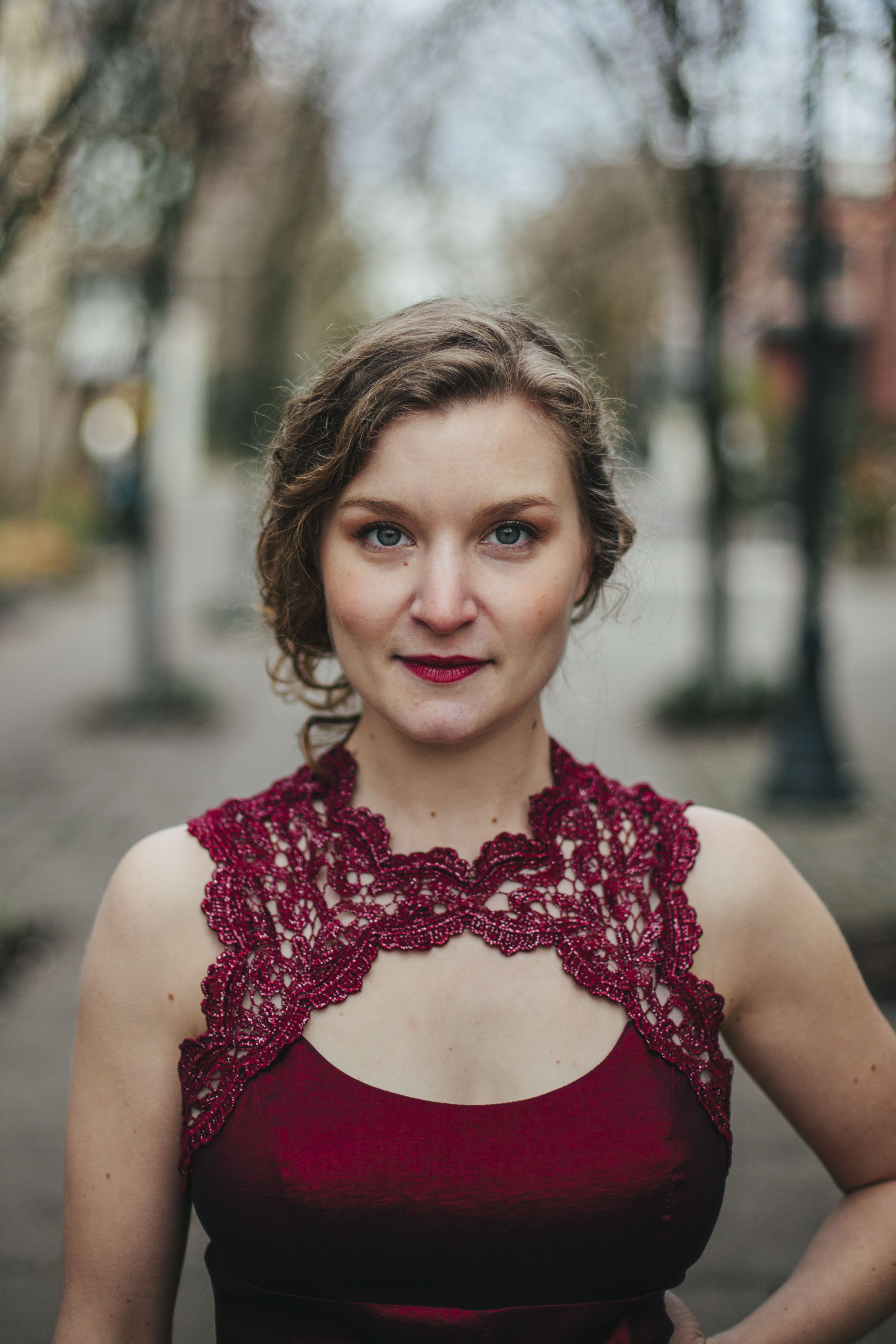
Danielle Reutter-Harrah, soprano
Danielle Reutter-Harrah has performed at the Boston Early Music Festival, with Seattle Symphony Orchestra, Seattle Opera, California Bach Society, American Bach Soloists, Baroque Chamber Orchestra of Colorado, Alabama Symphony, and Early Music Vancouver, among others. She most recently sang the role of Belinda in Baroque Chamber Orchestra of Colorado’s semi-staged rendition of Purcell’s Dido and Aeneas. In fall 2019 she performed with Pacific MusicWorks, the Byrd Ensemble and Early Music Vancouver. The 2018/19 season involved concerts of music by Brahms, Bach, Monteverdi, Handel, Clara Schumann and Fanny Mendelssohn, and others. Reutter-Harrah is a founding member of the voice and plucked strings duo Jarring Sounds, with Adam Cockerham on guitar, theorbo, Baroque guitar and lute. She sings frequently with Seattle’s Byrd Ensemble and Pacific MusicWorks. Danielle received her Bachelor’s of Music degree from the University of Denver’s Lamont School of Music and her Master of Music degree from the San Francisco Conservatory of Music. She lives in Seattle with her husband and son.
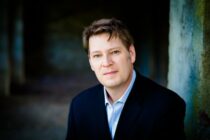
Sumner Thompson, baritone
Praised for his “elegant style” (The Boston Globe), Sumner Thompson is one of today’s most sought-after baritones. He has performed across North America and Europe as a soloist with renowned ensembles such as Concerto Palatino, Tafelmusik, Apollo’s Fire, Les Boréades de Montréal, Les Voix Baroques, the King’s Noyse, Mercury Baroque, and the symphony orchestras of Charlotte, Memphis, and Phoenix. Recent highlights include Monteverdi’s Vespers of 1610 and the new Vespers of 1640 with the Green Mountain Project; Buxtehude’s Membra Jesu Nostri with Les Voix Baroques and Houston’s Mercury Baroque; Mozart’s Requiem at St. Thomas Church in New York City; a tour of Japan with Joshua Rifkin and the Cambridge Concentus; and Britten’s War Requiem with the New England Philharmonic. He most recently appeared with EMV last year in From War to Peace: Heinrich Schurz and His Time (November) and Festive Cantatas: JS Bach Magnificat (December).
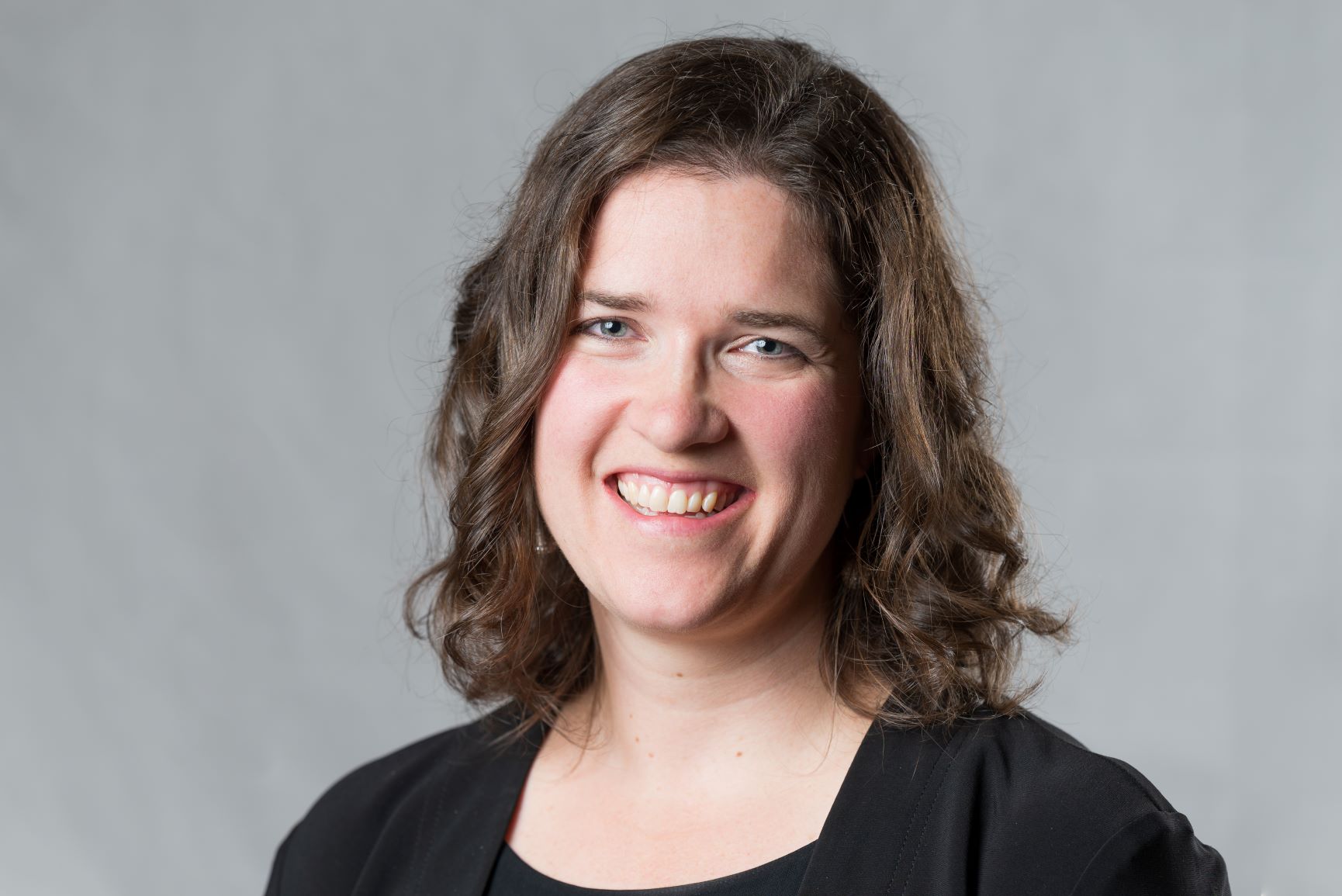
Christina Hutten, organ
Organist and harpsichordist Christina Hutten has presented recitals in Canada, the United States, and Europe. She performs regularly with Pacific Baroque Orchestra and has appeared as concerto soloist with the Okanagan Symphony, the Vancouver Academy of Music Symphony Orchestra, and the Arizona State University Chamber Orchestra. Christina is also an enthusiastic teacher. She coaches and coordinates the early music ensembles at the University of British Columbia and has given masterclasses and workshops at institutions including the Victoria Baroque Summer Program, Brandon University, the University of Manitoba, Wilfrid Laurier University, Canada’s National Music Centre in Calgary, and the Tafelmusik Baroque Summer Institute. Funded by a generous grant from the Canada Council for the Arts, she pursued historical keyboard studies in Europe with Francesco Cera, François Espinasse, and Bernard Winsemius. She participated in the Britten-Pears Programme, led by Andreas Scholl and Tamar Halperin, for which she was awarded the Loewen Prize. Christina obtained a master’s degree in Organ Performance from Arizona State University under the direction of Kimberly Marshall and an Advanced Certificate in Harpsichord Performance from the University of Toronto, where she studied with Charlotte Nediger. She is now a doctoral candidate in musicology at UBC.

